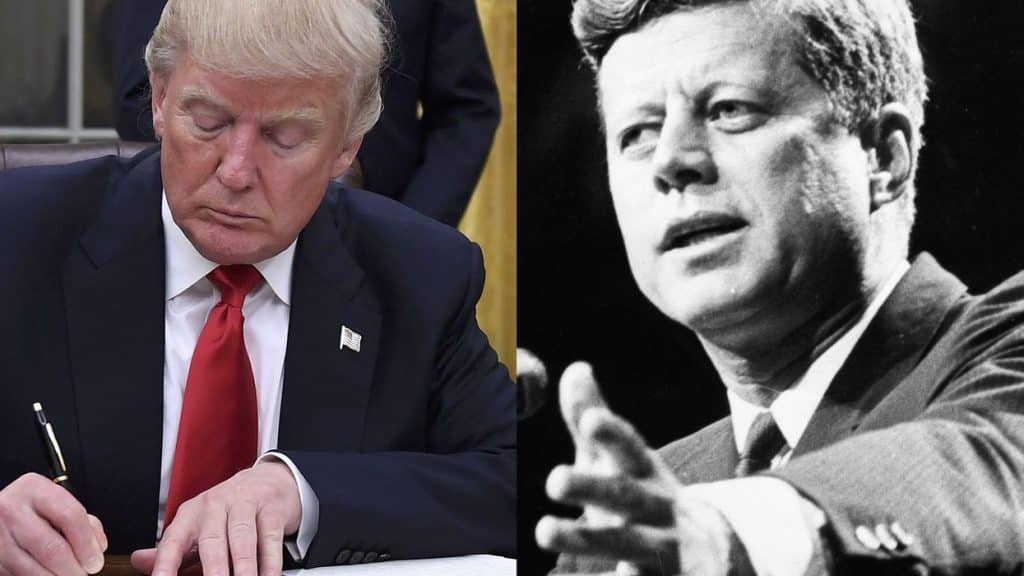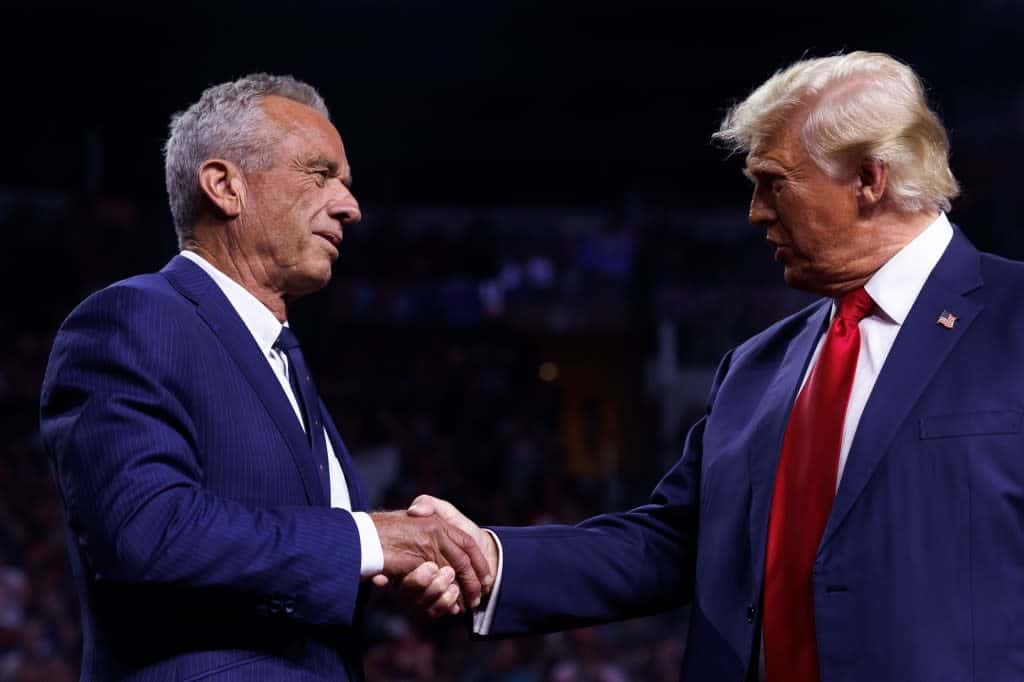President Trump Orders The Declassification of JFK Files
Trump Orders Declassification of JFK, RFK, and MLK Assassination Files
[playht_player width=”100%” height=”90px” voice=”en-US-AriaNeural”]
In a historic move, President Donald Trump has signed an executive order directing the immediate declassification of all remaining government records related to the assassinations of President John F. Kennedy, his brother Robert F. Kennedy, and civil rights leader Martin Luther King Jr. The order, signed in the Oval Office, has ignited a flurry of anticipation and speculation about what these long-sealed documents might reveal.
The Executive Order

The executive order specifically mandates that within 15 days, the Director of National Intelligence (DNI) and the Attorney General must present a comprehensive plan to the President for the “full and complete release of records relating to the assassination of President John F. Kennedy.” For the records pertaining to the assassinations of Robert F. Kennedy and Martin Luther King Jr., they have 45 days to develop a similar plan. This directive comes after decades of public demand for transparency regarding these pivotal moments in American history.
PROMISES MADE, PROMISES KEPT… pic.twitter.com/5YIhLPl7I9
— Dan Scavino🚀🇺🇸🦅 (@Scavino47) January 23, 2025
During the signing, President Trump stated, “Everything will be revealed,” signaling his commitment to transparency. He handed the signing pen to Robert F. Kennedy Jr., his nominee for Health and Human Services Secretary, who has long advocated for the release of these documents, particularly those concerning his uncle and father’s deaths. Kennedy Jr. praised the move, stating, “I think it’s a great move because they need to have more transparency in our government, and he’s keeping his promise to have the government tell the truth to the American people about everything.”
Historical Context and Previous Releases
The JFK assassination has been shrouded in mystery and conspiracy theories since November 22, 1963, when President Kennedy was shot while riding in a motorcade in Dallas. The official narrative, as concluded by the Warren Commission, attributes the assassination to Lee Harvey Oswald, acting alone. However, the lack of full disclosure has fueled numerous alternative theories involving the CIA, FBI, organized crime, and foreign governments.
The President John F. Kennedy Assassination Records Collection Act of 1992 mandated the release of all assassination-related documents by October 26, 2017, unless withholding them was deemed necessary for national security by the President. During his first term, Trump released thousands of documents but withheld hundreds at the behest of agencies like the CIA and FBI, citing national security concerns. Similarly, President Joe Biden released additional documents in 2022 and 2023 but continued to withhold some under the same pretext.
Public and Political Reaction
The reaction to Trump’s latest order has been mixed. While many see it as a pivotal step towards government transparency, others view it with skepticism. Jack Schlossberg, grandson of JFK, criticized the move as using his grandfather’s legacy as a “political prop.” Posts on X have shown a range of responses from enthusiasm to caution, with some users pointing out that while the order has been signed, the actual release of documents is still pending a detailed plan.
Implications and Expectations
The declassification could potentially shed new light on the operations of intelligence agencies at the time, Oswald’s activities leading up to the assassination, and any previously undisclosed connections or motives. For Robert F. Kennedy and Martin Luther King Jr., the release might reveal new details about their investigations, especially since there’s no legislative mandate for these records as there was for JFK’s. This could include information on Sirhan Sirhan’s lone gunman status in RFK’s case or provide clarity on James Earl Ray’s role in King’s assassination.
However, experts caution that while the release might offer new insights, it might not conclusively end all conspiracy theories. Historian Larry J. Sabato noted that while researchers hope for revelations, the likelihood of finding substantial new evidence that changes the historical narrative is low.
National Archives and Public Access
The National Archives has been the custodian of these records, with 97% of the approximately 5 million pages related to JFK’s assassination already public. The remaining files, some of which are fully or partially redacted, are expected to be scrutinized by historians, journalists, and conspiracy theorists alike once released.
Looking Forward
The Trump administration’s approach to this declassification process will be closely watched. With deadlines set for plans to be presented, the next steps involve how these agencies will navigate the release, ensuring national security while fulfilling the promise of transparency. The impact of these releases could extend beyond historical curiosity, potentially affecting public trust in government and the understanding of pivotal moments in U.S. history.
This executive order marks a significant moment in the ongoing quest for transparency in government actions, particularly those involving some of the most dramatic and tragic events in American history. As the nation awaits the detailed plans and eventual document releases, the discourse on government secrecy, national security, and the right to information continues to evolve.
Pages: 1 2











